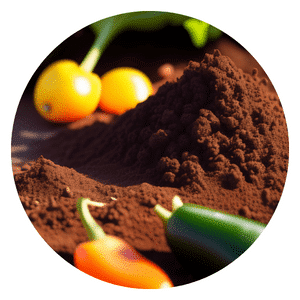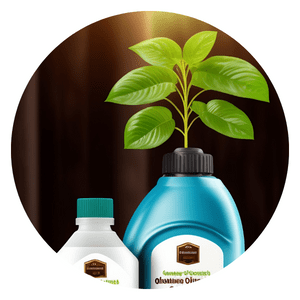How Long Does Watermelon Take to Grow?
The time it takes for watermelons to grow can vary depending on various factors such as the specific variety, growing conditions, and climate.
On average, it takes about 80 to 90 days for watermelons to reach maturity from the time of planting.
However, it’s important to note that this is just an average estimate, and the actual growing time can be influenced by factors like temperature, sunlight, soil quality, and watering practices.
Warmer temperatures and ample sunlight can accelerate the growth process, while cooler temperatures may slow it down.
Additionally, different watermelon varieties have varying growth rates.
Some smaller or early-maturing varieties may be ready for harvest in as little as 70 days, while larger or longer-maturing varieties can take up to 100 days or more.
To determine the readiness of your watermelon for harvest, observe the fruit’s size, color, and texture.
Look for a fully developed fruit with a firm rind and a deep, resonant sound when tapped.
It’s also helpful to check the specific recommendations for the variety you are growing, as seed packets or plant labels often provide an estimated maturity timeline.
Watermelon Menu
Variety
When it comes to growing watermelons, the variety you choose plays a crucial role in how long it takes for your crop to mature.
Some watermelon varieties can mature in as little as 75 days, while others may take up to 120 days or longer.
It’s important to select a variety that matches your climate and growing conditions.
For example, if you live in an area with a shorter growing season, it may be wise to choose an early maturing variety that can produce fruit before the first frost.
Several factors contribute to the growth rate of watermelon plants, including soil temperature and moisture levels.
In general, warmer soils will promote faster growth rates than cooler soils and consistent watering will help ensure steady growth throughout the season.
Choosing a disease-resistant variety can also impact the speed at which your plants grow – healthier plants are generally able to grow more quickly than those that are struggling with pests or diseases.
Ultimately, selecting the right watermelon variety is critical for successful cultivation.
Whether you’re looking for an early harvest or simply want a reliable crop that grows well in your area, there are plenty of options available on the market today that can meet your needs.
By doing some research ahead of time and choosing carefully based on your specific circumstances, you can enjoy delicious homegrown watermelons all summer long!
Temperature
Watermelons are a summer staple, loved for their refreshing sweetness and juicy texture.
But how long does it take to grow these tasty treats?
Well, the answer depends largely on temperature.
In warm temperatures of around 80-90°F (27-32°C), watermelons can be ready to harvest in as little as 70 days from planting.
However, cooler temperatures below 60°F (15°C) can significantly slow down growth and extend the time to maturity.
To ensure optimal growth and maximum yield, watermelon plants need consistent warmth throughout their growing season. This means avoiding planting too early in the spring when temperatures are still chilly or waiting too late into the summer when temperatures begin to cool off.
Additionally, providing adequate irrigation is crucial for maintaining soil moisture levels and preventing heat stress during hot weather.
If you’re looking to grow delicious and healthy watermelons in your garden this year, keep in mind that temperature plays a vital role in determining their growth rate and time to maturity.
Sunlight
Watermelon is a sun-loving fruit that requires an abundant amount of sunlight for optimal growth and development.
The fruit needs at least 6 to 8 hours of full sun exposure every day to efficiently carry out photosynthesis, which is the process that enables plants to produce their food.
Sunlight is essential for the formation of sugars in watermelons, which are responsible for giving them their sweet taste.
Lack of access to enough sunlight can lead to stunted growth and poor fruit production in watermelons.
When these fruits do not get enough light, they may also develop pale or yellowish leaves, which indicates that they are not producing sufficient chlorophyll – the pigment that helps plants capture energy from sunlight during photosynthesis.
Therefore, it’s essential to plant watermelons in a location with maximum sun exposure throughout the day if you want them to grow optimally.
Remember that consistent hours under full sun will provide your watermelon plants with all the energy they need for photosynthesis and result in delicious juicy fruits at harvest time.
How long does watermelon take to grow? From a tiny seed, it starts to show Days turn into weeks, and weeks into months And soon it's ready for us to crunch Under the sun, it soaks up its power Growing bigger and sweeter like a flower So be patient and give it time to mature For the taste of summer, we all adore.
Chappy The Gardener
Soil quality
Watermelons typically take 80 to 100 days to fully mature.
However, this timeline can vary depending on various factors such as the soil quality, temperature, and humidity levels.
As mentioned earlier, soil quality is a crucial factor that directly affects the growth rate of watermelons.
To ensure optimal growth and yield of watermelons, it’s crucial to prepare the soil adequately before planting. This involves amending the soil with organic matter such as compost or well-rotted manure to improve its nutrient content and structure.
Adding mulch over the soil surface can help retain moisture and suppress weed growth.
In addition to amending the soil, regularly monitoring and adjusting its pH level is also essential for healthy growth of watermelon plants.
The ideal pH range for watermelon cultivation is between 6.0 to 6.8. If your soil pH falls outside this range, you may need to add amendments such as lime or sulfur to adjust it accordingly.
By taking these steps in preparing your garden bed before planting watermelons, you’ll be setting up your plants for success!
Watering
Watering is a crucial factor in the growth of watermelons. They require consistent and adequate watering to thrive.
Watermelons need plenty of water to develop their juicy flesh, and lack of water can lead to poor quality fruit or even plant death.
Deep watering is important for the roots to have access to moisture as they grow deep into the soil.
Inconsistent watering can also cause problems for watermelon plants.
Drought stress can lead to stunted growth, wilted leaves, and smaller fruit size.
On the other hand, overwatering can cause root rot and other fungal diseases that may kill the plants.
It’s essential to strike a balance between providing enough moisture without drowning the roots.
Overall, consistent deep watering is essential for healthy watermelon growth.
By ensuring that the plants receive sufficient moisture throughout their growing season, gardeners can increase their chances of producing flavorful and juicy fruits.
Fertilization
Watermelon is a warm-season crop that requires a lot of care and attention to grow.
Fertilization plays a critical role in the growth rate of watermelons.
Organic fertilizers or compost are beneficial for providing the necessary nutrients to your watermelon plants. The appropriate levels of nitrogen, phosphorus, and potassium can significantly improve the growth rate of your watermelons.
Nitrogen is essential for plant growth and increases leaf production in watermelon plants.
Phosphorus helps with root development, flowering, and fruiting.
Potassium assists with photosynthesis, improves stress tolerance, and enhances overall plant health.
It’s important to note that over-fertilizing your plants can damage them instead of helping them grow faster.
Using organic fertilizers or compost is an excellent way to provide the necessary nutrients for your watermelon plants during their growing season.
Adequate levels of nitrogen, phosphorus, and potassium play a vital role in enhancing the growth rate of watermelons.
Remember not to over-fertilize your plants as it can potentially harm rather than benefit them.
With proper care and attention through fertilization techniques such as these mentioned above will surely help you achieve success in growing healthy delicious watermelons!
Pollination
Pollination is a crucial step in the growth and development of watermelons.
Without successful pollination, watermelon plants cannot produce fruit.
The transfer of pollen between flowers is typically done by bees and other pollinators that are attracted to the sweet nectar of the flowers.
As these insects move from flower to flower, they carry pollen with them, which fertilizes the female flowers and allows for fruit development.
To ensure a healthy population of pollinators in your garden or farm, it is essential to create a habitat that attracts these beneficial insects.
Planting a variety of flowering plants and providing nesting sites can attract bees and other pollinators to your garden.
You can also avoid using pesticides or herbicides that may harm or repel these important insects.
Pruning
Pruning watermelon vines is a crucial step in growing healthy and abundant fruit.
The process involves removing the excess foliage and side shoots that can hinder fruit development.
Pruning allows for better air circulation and sunlight penetration, which promotes the growth of larger, sweeter watermelons.
It is best to start pruning when the vines are about six feet long, and to continue throughout the growing season until it’s time for harvest.
When pruning, be sure to use sharp tools to avoid damaging the plant.
As you prune, look for any diseased or damaged leaves or stems and promptly remove them.
Additionally, be mindful not to over-prune as this can cause stress on the plant and negatively impact fruit production.
With proper pruning techniques, a watermelon plant can redirect its energy towards producing deliciously ripe fruits that will be ready for harvest in 80-100 days after planting.
In conclusion, growing watermelons can be a rewarding and fun experience.
It takes patience and diligence to grow these juicy fruits successfully, but the results are worth it.
Depending on the variety and the growing conditions, watermelons can take anywhere from 70 to 90 days to mature.
With proper care and attention, you can enjoy a bountiful harvest of sweet and refreshing watermelons.
So, why not add watermelon to your garden this year and taste the delicious rewards of your hard work?
Happy growing!
Click To Grow
Helps Us Grow – Share If You Like














